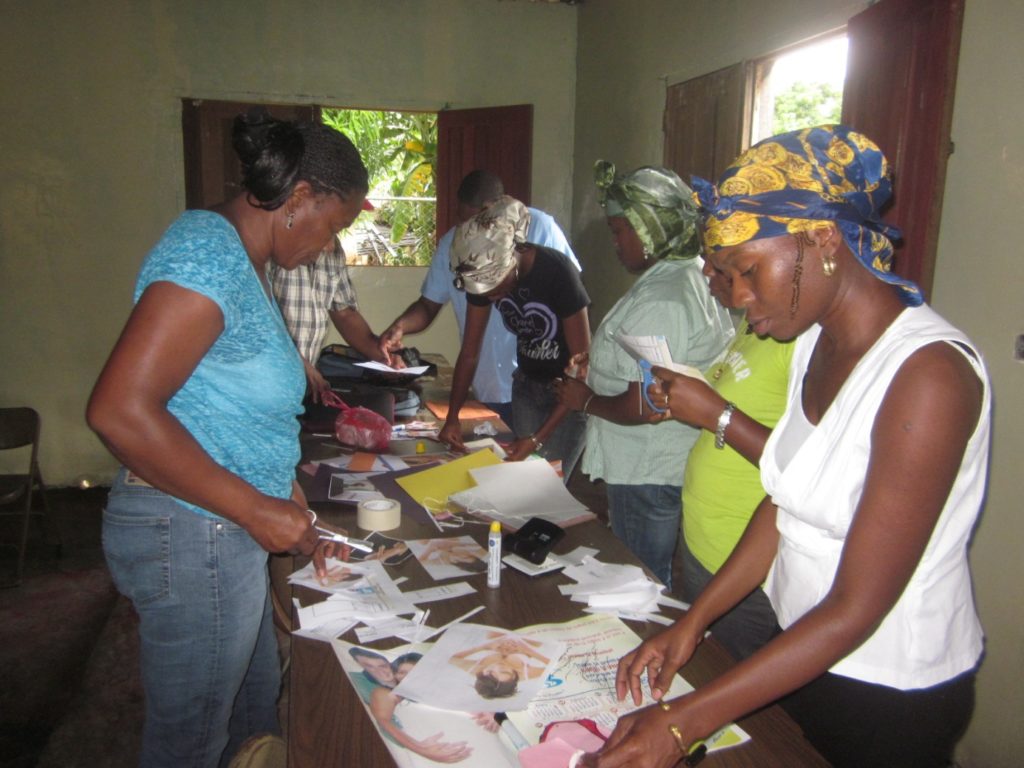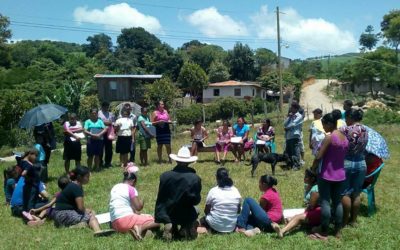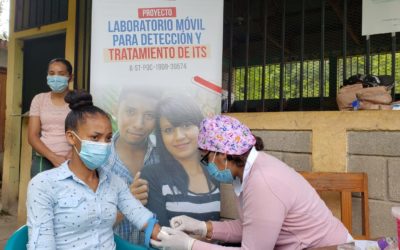More than 600 thousand adolescents, 200 thousand families and 60 thousand mediators and promoters have been trained and sensitized to generate responsible and healthy changes. These people have been benefited through the training process and various actions in service with the communities and institutions involved in the framework of the PreNatal program implemented by the Waal Foundation (FdW), for more than three decades in ten Latin American countries.
“In these years of work I have seen the satisfaction of mediators and monitors and partner organizations on how knowledge is applied and lives can be changed”. “The work of a mediator consists of generating changes in practices, creating awareness about the preconception, prenatal, and postnatal care of the baby, involving not only the pregnant woman, but also the father and the entire family and community.” “There are many more pregnancies planned in the area, thanks to the intervention and awareness with the PreNatal program.”
Learning, information, reflection and change are words that are repeated in hundreds of testimonies from professionals, community leaders, students, mothers and fathers who have been beneficiaries of the different initiatives designed and facilitated by the Waal Foundation (FdW), for 35 years.
The Waal Foundation (FdW) was created on November 1, 1985 in the Netherlands. It is a non-profit organization, which through its PreNatal program promotes the prevention of diseases and deficiencies that can cause disabilities or impede full development in the preconception, prenatal and postnatal stages with the training of professionals and community leaders, who are they become agents of change in prevention.
Since its creation, the focus of the FdW was directed to the care of children with special needs and the integration into society of people with disabilities in coordination with more than 2,000 institutions. Between 1993 and 2001, his work aimed at Comprehensive Community Rehabilitation (RIC) and benefited some 500 thousand people, located in NGOs, the media, community organizations, educators and public institutions.
Since 2000, it has promoted actions to help create a culture of disease and deference prevention with an emphasis on the preconception, prenatal and early childhood stages through educational and health projects in Latin America. At the moment the FdW works in Bolivia, Ecuador (regional office), El Salvador and Honduras. Through its PreNatal program, it has focused on the training of professionals and community leaders, sensitization of men and women of reproductive age, advocacy in public policy and partnerships for development.
The ABCD (Eating well, Seeking medical attention, Taking Care of Aggressions to the Unborn Baby and Giving Love); 12-month pregnancy who are cared for 3 months before +9 months during pregnancy for a healthy baby; the #YoDecido to prevent adolescent pregnancy and the Good Beginning Better Future for early childhood are the campaigns of the PreNatal program. In this way, mediators bring key prevention messages to communities and seek to influence knowledge, attitudes and healthy practices.
One of the biggest bets of the FdW has been the incorporation of the Basic level to the PreNatal program. It is a proposal for a community approach, which uses the popular education methodology for the training of promoters in prevention and which is supported by home visits, health fairs, community mobilizations, radio programs and role-plays to reach the largest number of people. .
In 2020 we generated and launched the first International Course on Prevention and Promotion of Maternal and Child Health in times of COVID-19, with the participation of experts and mediators from 5 countries. It is the first time that the FdW has carried out an international course, totally virtual and in specific response to an emerging situation, in this case a pandemic. “This experience helps us think about future proposals and the capacity we have to innovate, create and respond to the context of health and development in our region, according to Sebastián Salgado, Project Manager of the FdW.
Among the resources that have been used to enhance the training process are various technological tools, such as the PreNatal Virtual Classroom with interactive digital instruments that facilitate learning. This virtual mechanism has achieved greater relevance during the current health emergency, facilitating the development of courses, in the midst of confinement measures. “The pandemic accelerated technological change, and from the FdW we have been able to adapt and strengthen our training, awareness and positioning strategies using various technological resources,” says Salgado.

With an average rate of 90% satisfaction on the part of the participants regarding our training processes, we continue to be committed to our objective of leading the prevention of deficiencies and diseases that cause disability in the prenatal and postnatal stages with a sustainable management model and culturally respectful, which promotes a healthy society of boys and girls who take advantage of all their potentialities and capacities.
Marco Vernooij, director for Latin America of the FdW, reflects on the path traveled: “Our role consists of articulating, coordinating and facilitating the development of capacities and the generation of sustainable changes at the personal, community and institutional levels, which are necessary. . ” At the same time, it states that the experiences with which the Foundation can contribute “to help solve the most relevant social problems of now and tomorrow are based on particular and local needs. We link with international and national development agendas to create optimal conditions of prosperity for unborn children, and later, during early childhood.
It highlights that this present and future problem requires a comprehensive attention and analysis approach, which generates permanent changes in behavior at the individual and family level, which positively transforms health and the environment. In the same way, it aspires to achieve institutional and systemic changes that result in better living conditions for people, “looking for the optimum and not the maximum. A healthy life where each individual takes advantage of all their potentialities and capacities it requires care from the first stages of life, linking and balancing the community, the environment and the economy ”, explains Vernooij.



